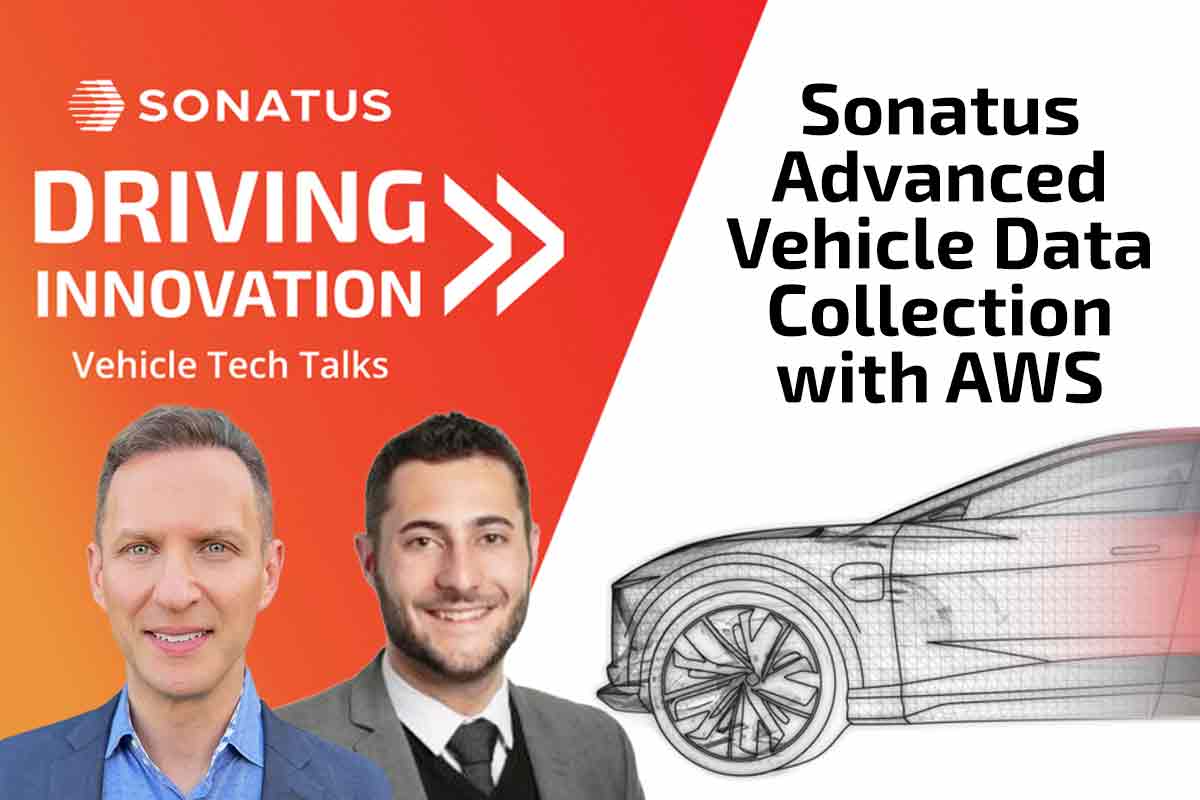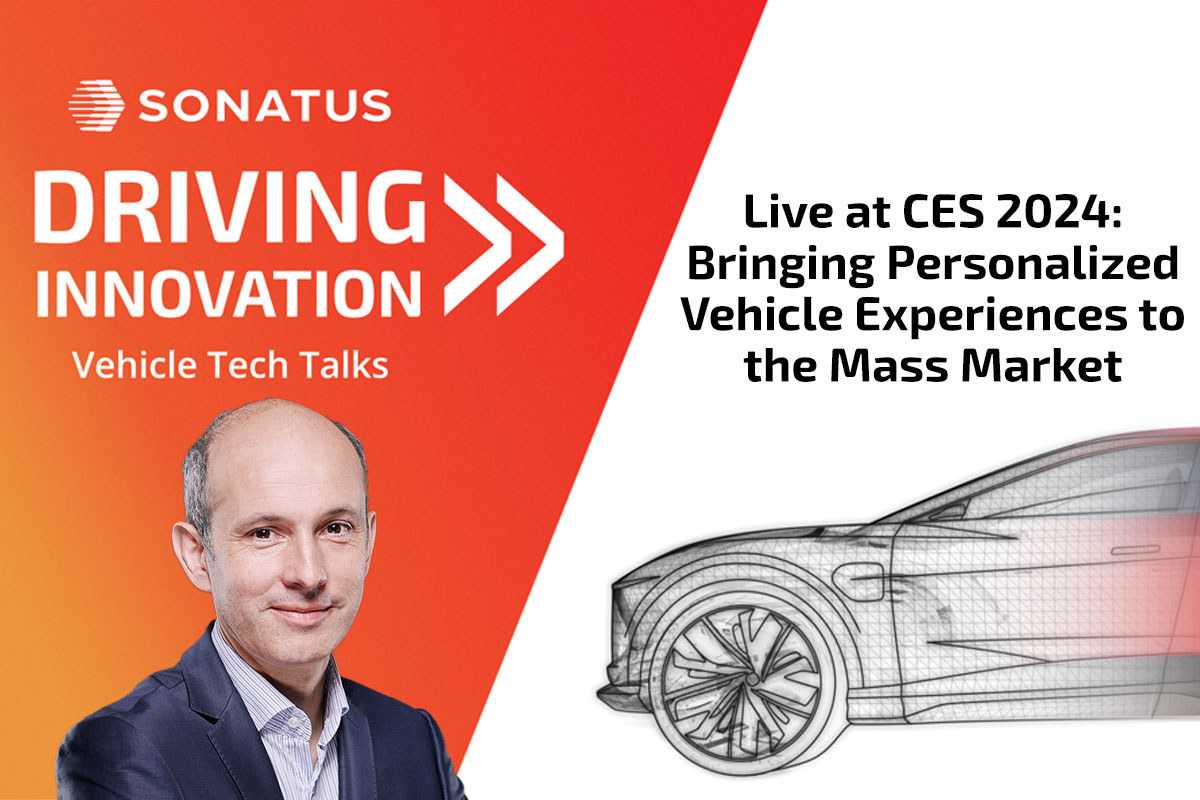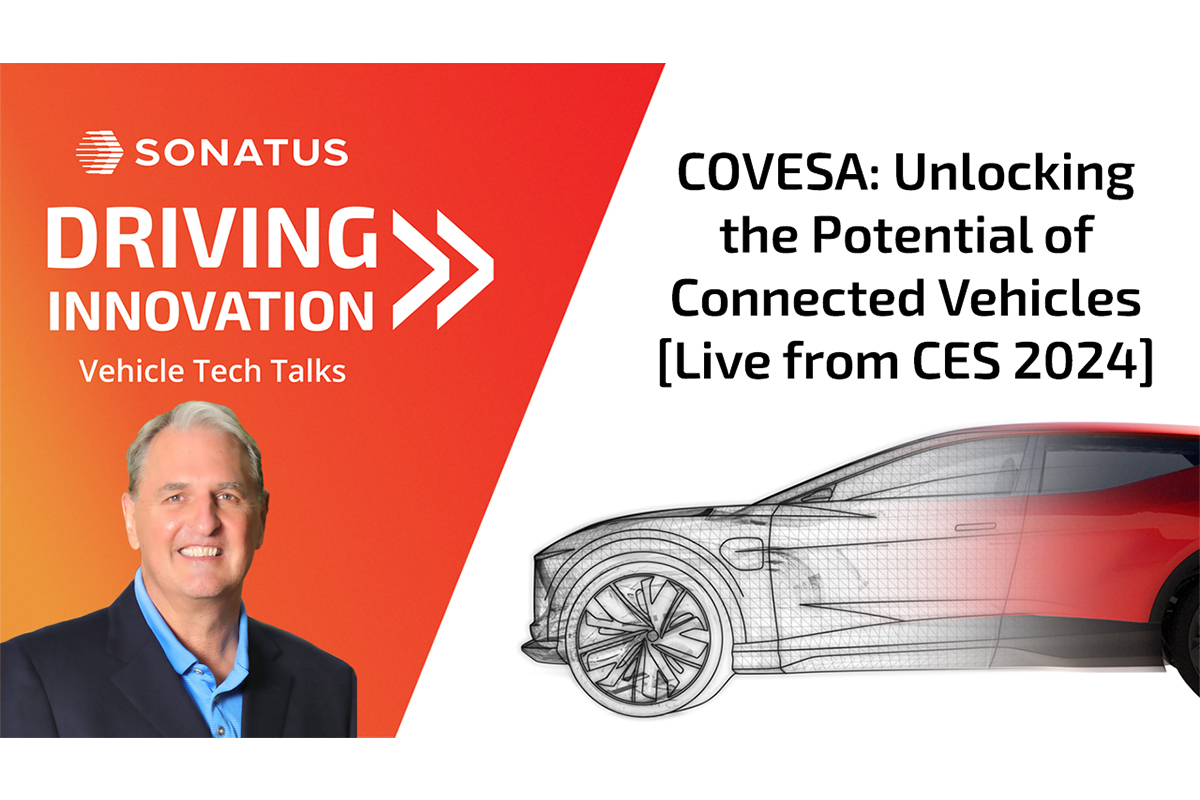Introduction
Welcome to another episode of Driving Innovation, where we talk about technologies and solutions that are enabling the auto industry to make the transition to software-defined vehicles. My name is Sanjay Khatri, Head of Product here at Sonatus. In this episode, I’ll be giving you a sneak peek into a case study that we just published describing how one of the world’s largest OEMs has been able to harness the power of vehicle data to drive transformations across all parts of their business using Sonatus Collector, our next generation data collection solution.
Value of vehicle data for auto industry and SDVs
One way to describe the move toward software-defined vehicles is that we are, in effect, turning vehicles into digital products, or even digital platforms for innovation. And like all digital products, data fuels their continuous evolution. It is expected that 90% of vehicles sold in 2030 will be connected, each capable of generating anywhere from a few gigabytes to terabytes of driving data per hour, for instance, when autonomous driving is engaged. And OEMs are eager to tap into this data for better vehicle ownership and driving experiences and for building new business models. But nowhere has the expression too much of a good thing been truer than when it comes to harnessing the tsunami of data and putting it to good use. In our case study, we examined how our customer, one of the world’s largest automakers, has tackled the challenges of getting true value out of vehicle data, both in production and, more importantly, from the millions of vehicles that are already on the road, using Sonatus Collector.
Challenges faced by a top OEM with their data collection
Let’s start with the challenges this OEM faced. The previous strategy to simply collect all vehicle data available and then figure out in the cloud what was useful was inefficient and expensive. It unnecessarily taxed in-vehicle resources and resulted in excessive cloud connectivity, storage, and analytics costs. They also lack the agility and flexibility in their data collection. As an OEM, you can’t anticipate all your vehicle data needs at the time you design and engineer your vehicles. You need to adapt to evolving needs and to observe vehicles in real-world driving situations in order to continuously analyze and improve them for those real-world situations. You may also find new business opportunities that require completely different data sets. Lastly, without a cohesive data collection solution, each organization had instituted their own bespoke solution, leading to duplication of data collection pipelines. This created data silos and prevented cross-team collaboration in order to get more holistic insights and improvements.
How Sonatus Collector helped maximize the ROI on vehicle data
Our case study then goes on to describe how Sonatus Collector delivered a solution that combined precise edge intelligence with the ease of cloud configurability to efficiently sift through the noise to get to the valuable signals. Collector’s event-triggered data collection policies allow the OEM to increase the use of data 20-fold, using only one-fourth of the data. That’s an 80X improvement in data use efficiency. They also found that collecting data very precisely helped accelerate the analysis and use of their AI models, getting to results faster with less effort, from weeks and months to days and even hours. Finally, with Collector’s access to a wide variety of vehicle signals, logs, sensor readings, coupled with the flexibility of creating very sophisticated and granular data collection policies, meant that multiple organizations within the OEM could use a single solution for data-driven outcomes, from R&D and QA to post-sales maintenance and connected services.
Summary
In summary, yes, the vehicle data deluge is real, but it can be tamed and put to good use with the right solution. Check out the case study to learn more, and reach out to Sonatus to get a hands-on demo to see how it can benefit your business. And hopefully will be able to feature your vehicle data success story in a future Driving Innovation episode.



